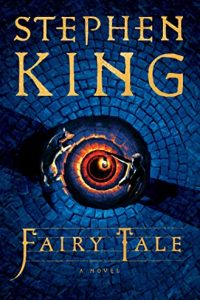We Lived on the Horizon by Erika Swyler: Review by Gary K. Wolfe
 We Lived on the Horizon, Erika Swyler (Atria 978-6680-4959-4, $28.99, 336pp, hc) January 2025.
We Lived on the Horizon, Erika Swyler (Atria 978-6680-4959-4, $28.99, 336pp, hc) January 2025.
Despite what Robert Frost may have thought, a lot of SFF writers really do love a wall. Walled and isolated cities, redoubts, or keeps (to use the term favored by The Science Fiction Encyclopedia) have proved useful to SFF for exploring everything from overpopulation to alien invasions to environmental catastrophe to those pesky tech overlords, and they seem to be having something of a resurgence lately; recent examples include Samantha Mills’s The Wings Upon Her Back, Tobias Buckell’s A Stranger in the Citadel, and, perhaps most ambitiously, Gautam Bhatia’s duology The Wall and The Horizon. As if in recognition of the bunker mentality of this tradition, Erika Swyler, in We Lived on the Horizon, names her city Bulwark – ‘‘a walled city built to protect and preserve the people who managed to survive a series of great cataclysms.’’ I have to confess that Swyler is not an author I was familiar with, despite speculative elements in her earlier novels The Book of Speculation (2015) and Light from Other Stars (2019), and despite her mention of Ursula K. Le Guin, Octavia Butler, and Margaret Atwood in the acknowledgments of the new novel. She seems to belong to that loosely defined group of SF-adjacent literary writers who are seldom marketed as SF and seldom show up on awards ballots (though Emily St. John Mandel did win a Clarke for Station Eleven), but who are nevertheless in dialogue with familiar SF traditions. (Her acknowledgments also mention Sequoia Nagamatsu, Matt Bell, and Brenda Peynado, who ‘‘helped me feel like this is a space where I belong.’’)
This may be one reason that Swyler is less interested in the mysteries of the world outside the city, or exactly what those ‘‘great cataclysms’’ were, than on the nature of the society that has evolved within Bulwark. The descendants of the founders of the city have created an elite, privileged class called ‘‘Saints,’’ who enjoy almost limitless credits in an economy that depends on ‘‘societal debt’’ as determined at birth by a bureaucratic class of Assessors. Those who are not Saints may spend their entire lives trying to earn back their life debt through acts of altruism or public service. Still, Bulwark is hardly an off-the-shelf dystopia; rates of infant mortality, starvation, stress-related illness, environmental hazards, and various other measures suggest a stable and largely peaceful society. But fairly early on, we begin to see cracks in the system: One of the Saints is violently murdered in his home, and the citywide AI, named Parallax – essentially a city manager, in contact with all the various house AIs in the city – begins to exhibit mysterious dropouts, effectively blocking efforts to find out what’s really going on.
But again, the inevitable cracks in a flawed utopia are not really what Swyler is most interested in with We Lived on the Horizon. Her protagonist, Saint Enita Maloris, is the city’s only maker of biomechanical prostheses (which to me seems pretty unlikely for a technologically advanced, AI-driven society, but there’s a plot point to come), and as she approaches seventy, she’s growing concerned that her valuable skills may be lost when she dies. She decides to train her house AI, Nix, in her methods, and uses her prosthetic techniques to grow an independent robot body for him. Meanwhile, her closest friend and sometime lover, Saint Helen, is expressing concern that the Saints may be in danger, given that recent murder. To complicate matters even further, a young couple shows up at Enita’s door, carrying a severely injured woman named Neren and insisting that Enita treat her, since for vague reasons a hospital is out of the question. Enita provides her with a prosthesis that saves her leg, only to learn that Neren is outraged, since she’s a Body Martyr, who essentially makes her living by donating body parts to the more privileged, and whose career is thus derailed by the alterations in her body caused by the prosthesis.
Obviously, there are a lot of themes that Swyler wants to pack into what is in many ways an almost claustrophobic narrative (most of the first third of the book takes place entirely in Enita’s home and laboratory): The benefits and dangers of an altruism-based economy and an AI-managed society, the shift in consciousness when a household AI becomes an embodied robot, the ethical responsibilities of a scientist with a unique skill set, the inevitable class tensions that echo older SF going all the way back to Metropolis (with which the novel shares more DNA than the more obvious Frankenstein). While not all these provocative notions, to me, are seamlessly embedded into a narrative that at times seems to shift focus – that murder mystery early in the story is nearly sidelined until another murder shows up – what finally brings the novel together are the insightfully drawn portraits of Enita – a rare elderly protagonist too seldom seen in SF – her friend Helen, the idealistic if troubled Body Martyr Neren, and perhaps most impressively of all, the AI-turned-robot Nix. As SF, at least for me, We Lived on the Horizon may have a few ragged loose ends, but as an exploration of character and class in a problematical society, it’s both thoughtful and gracefully presented.
Interested in this title? Your purchase through the links below brings us a small amount of affiliate income and helps us keep doing all the reviews you love to read!
Gary K. Wolfe is Emeritus Professor of Humanities at Roosevelt University and a reviewer for Locus magazine since 1991. His reviews have been collected in Soundings (BSFA Award 2006; Hugo nominee), Bearings (Hugo nominee 2011), and Sightings (2011), and his Evaporating Genres: Essays on Fantastic Literature (Wesleyan) received the Locus Award in 2012. Earlier books include The Known and the Unknown: The Iconography of Science Fiction (Eaton Award, 1981), Harlan Ellison: The Edge of Forever (with Ellen Weil, 2002), and David Lindsay (1982). For the Library of America, he edited American Science Fiction: Nine Classic Novels of the 1950s in 2012, and a similar set for the 1960s. He has received the Pilgrim Award from the Science Fiction Research Association, the Distinguished Scholarship Award from the International Association for the Fantastic in the Arts, and a Special World Fantasy Award for criticism. His 24-lecture series How Great Science Fiction Works appeared from The Great Courses in 2016. He has received six Hugo nominations, two for his reviews collections and four for The Coode Street Podcast, which he has co-hosted with Jonathan Strahan for more than 300 episodes. He lives in Chicago.
This review and more like it in the December 2024 issue of Locus.
 While you are here, please take a moment to support Locus with a one-time or recurring donation. We rely on reader donations to keep the magazine and site going, and would like to keep the site paywall free, but WE NEED YOUR FINANCIAL SUPPORT to continue quality coverage of the science fiction and fantasy field.
While you are here, please take a moment to support Locus with a one-time or recurring donation. We rely on reader donations to keep the magazine and site going, and would like to keep the site paywall free, but WE NEED YOUR FINANCIAL SUPPORT to continue quality coverage of the science fiction and fantasy field.
©Locus Magazine. Copyrighted material may not be republished without permission of LSFF.









